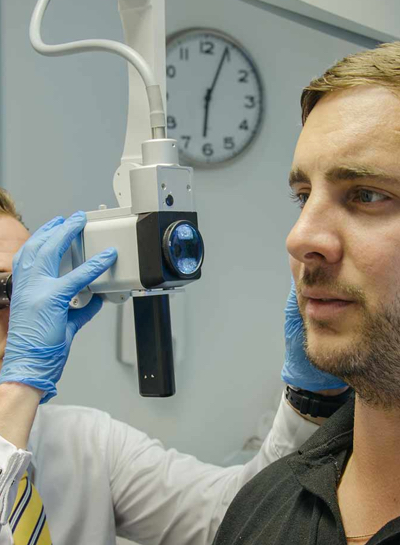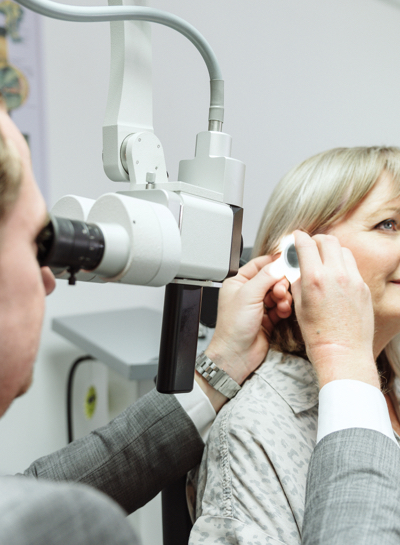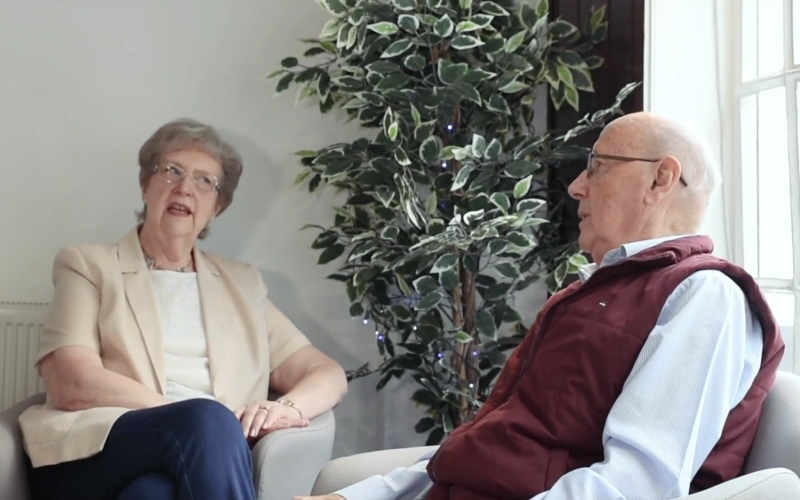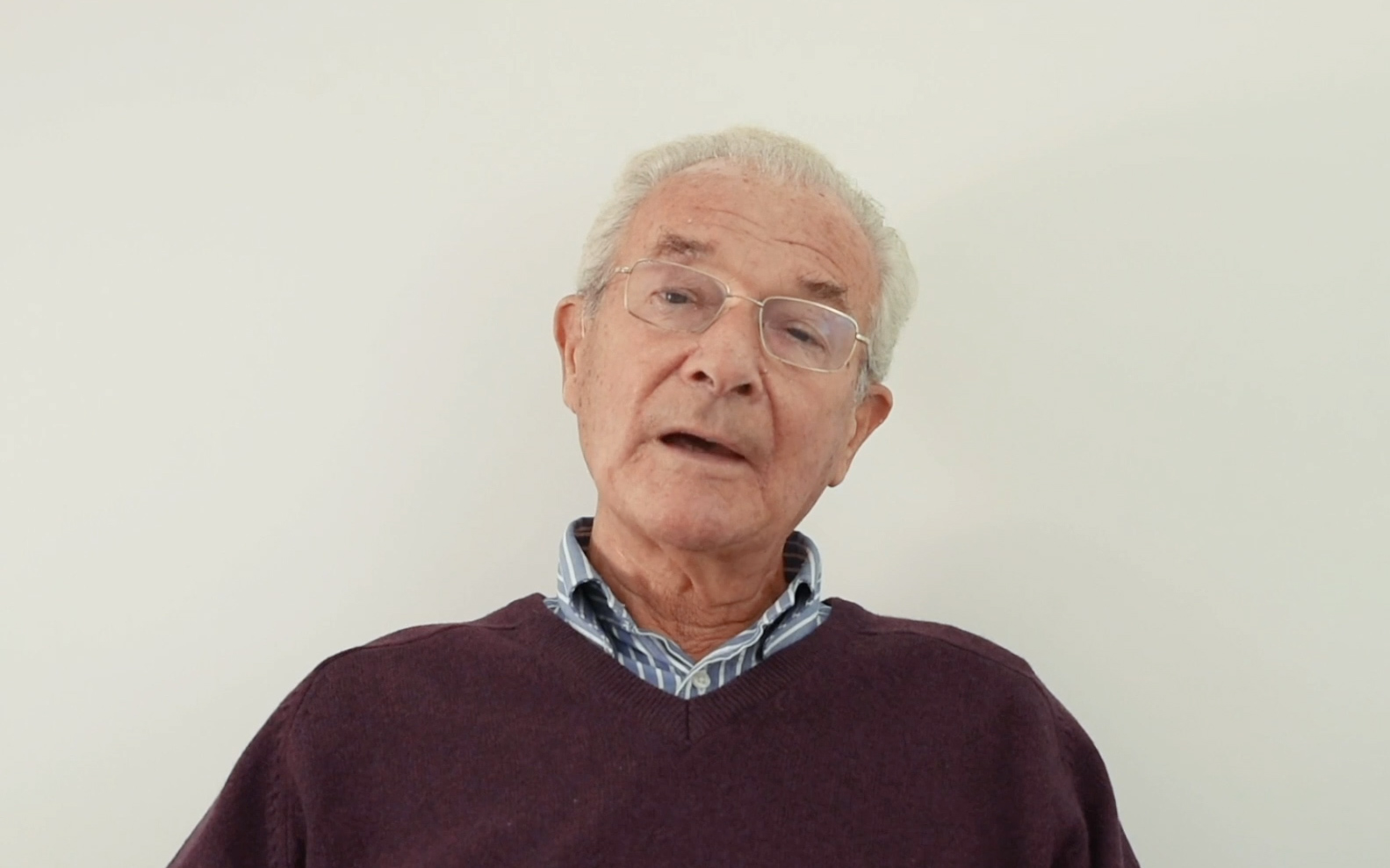Why good hearing is so important in our everyday lives
Those with good hearing, don’t often think twice about what it means to possess this quality. Chatting with friends, listening to the sounds of nature, enjoying music or even hearing warning signals – they take it all for granted. It is only when our hearing starts to significantly deteriorate, that we realise just how important it is in our everyday lives, and how much we miss it when we no longer hear well.
The ear – a miracle of nature
The ear is an amazing and incredibly skilled organ that performs the wonderful and highly complex task of hearing. It can distinguish between 7,000 different pitches and enables the brain to locate sound sources…
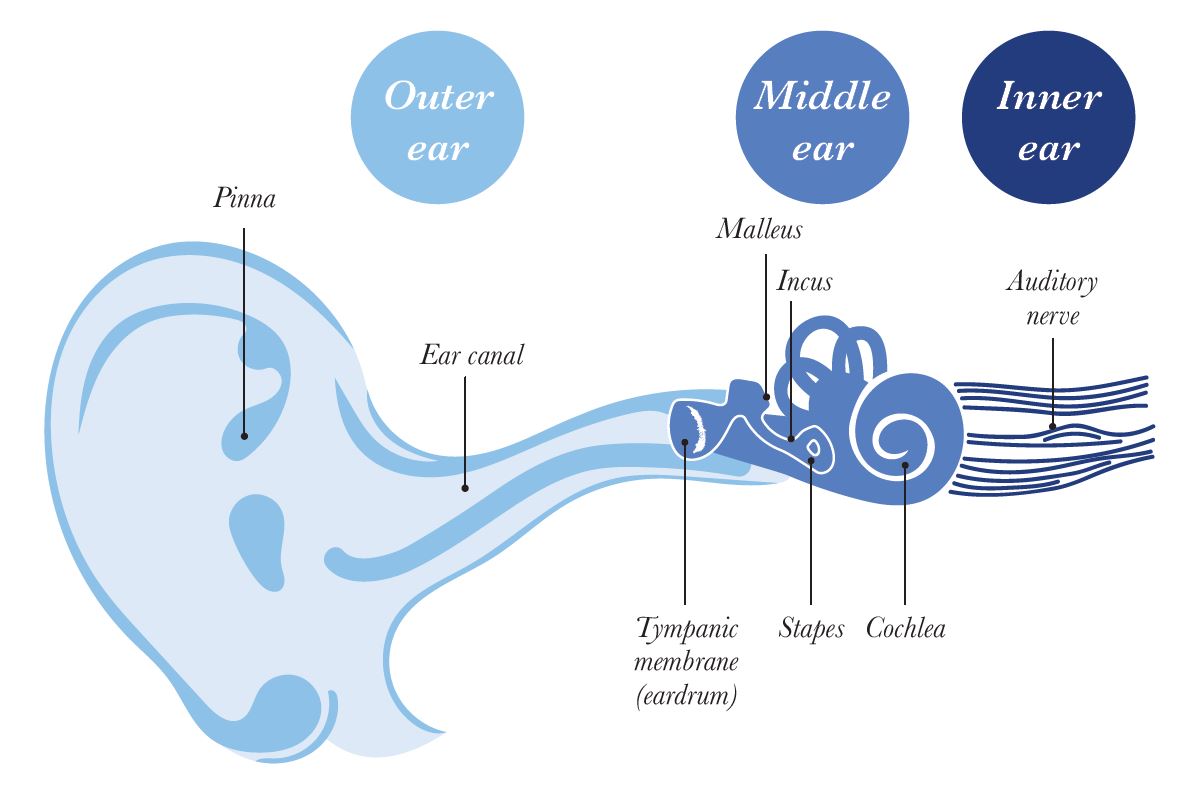
How hearing works
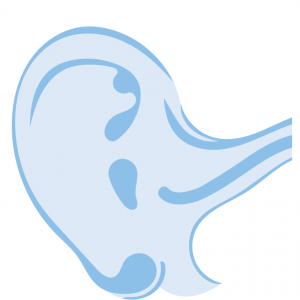
Outer ear
The outer ear picks up sound and transmits it to the eardrum via the ear canal.

Middle ear
The sound makes the eardrum vibrate and is amplified by the ossicles (three tiny bones: Malleus, Incus & Stapes).

Inner ear
The cochlea converts movements of the ossicles into electrical signals. The auditory nerve transmits these to the brain.
 What does hearing loss mean?
What does hearing loss mean?
No two cases of hearing loss are the same.
However, most often people with a hearing impairment are unable to distinguish soft tones and high pitch sounds, such as whispers, children’s voices or bird song.
The understanding of speech also suffers because many of the sounds important for comprehending speech are soft and high-pitched, such as that of “s” and “th”. These are sounds that help us determine the difference between “path” and “pass”, and, however paradoxical it may sound, increasing the volume is of limited help. People with a hearing impairment require clarity and not volume.
Hearing impairments can occur in all parts of the ear. Dysfunctions of the outer or middle ear can normally be treated with medication or surgery. However, a good 80% of all hearing impairments are caused by dysfunctions of or damage to the inner ear. Today, modern hearing instruments can compensate for most inner ear damage.
 Only old people have poor hearing?
Only old people have poor hearing?
Not true!
It’s untrue to say that only older people suffer from hearing loss, as poor hearing is prominent across all age groups.
Increasingly, more and more young people are suffering from hearing impairments. This is often caused by listening to excessively loud music through headphones. Your profession can also impact upon your hearing; construction workers, ambulance drivers, engineers, agricultural and factory workers are all examples of professions where loud noise can have a lasting and damaging effect on your hearing.
- More than 700 million people around the world have a hearing impairment.
- Worldwide, 8.5% of all people between the age of 20 and 30 suffer from hearing loss.
- Only 35% of all people with hearing loss are over the age of 64.
- Only 5-10% of all cases of hearing loss in adults can be treated medically or surgically.
- Many people with hearing loss wait as long as 10 years before they do something


 Request An Appointment
Request An Appointment
